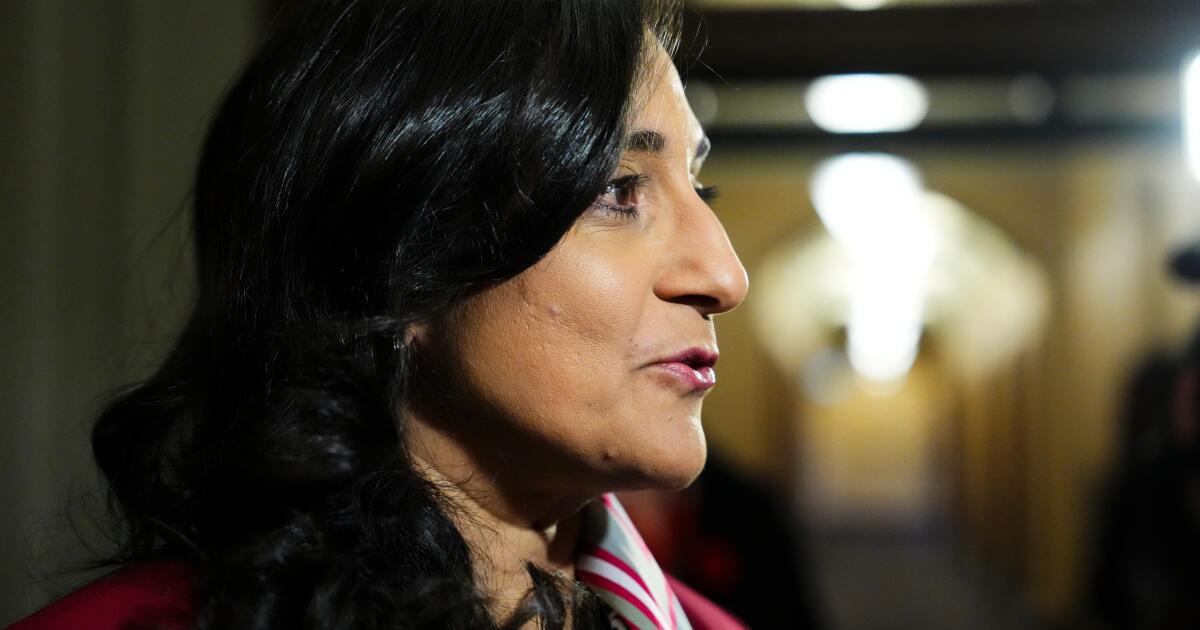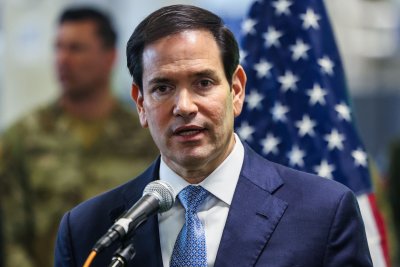Top diplomats from G-7 countries meet in Canada as trade tensions rise with Trump
TORONTO — Top diplomats from the Group of 7 industrialized democracies are converging on southern Ontario as tensions rise between the U.S. and traditional allies such as Canada over defense spending, trade and uncertainty over President Trump’s ceasefire plan in Gaza and efforts to end the Russia-Ukraine war.
Canadian Foreign Minister Anita Anand said in an interview with the Associated Press that “the relationship has to continue across a range of issues” despite trade pressures as she prepared to host U.S. Secretary of State Marco Rubio and their counterparts from Britain, France, Germany, Italy and Japan on Tuesday and Wednesday.
Anand also invited the foreign ministers of Australia, Brazil, India, Saudi Arabia, Mexico, South Korea, South Africa and Ukraine.
She said “15 foreign ministers are coming from around the world to the Great White North and funnily enough on the week of our first large snowfall.”
“The work that Canada is doing is continuing to lead multilaterally in an era of a greater movement to protectionism and unilateralism,” Anand said. “And in an era of economic and geopolitical volatility.”
Canada’s G-7 hosting duties this year have been marked by strained relations with its North American neighbor, predominantly over Trump’s imposition of tariffs on Canadian imports. But the entire bloc of allies is confronting major turbulence over the Republican president’s demands on trade and various proposals to halt worldwide conflicts.
One main point of contention has been defense spending. All G-7 members except for Japan are members of NATO, and Trump has demanded that the alliance partners spend 5% of their annual gross domestic product on defense. While a number of countries have agreed, others have not. Among the G-7 NATO members, Canada and Italy are furthest from that goal.
There have also been G-7 disagreements over the Israel-Hamas war in Gaza, with Britain, Canada and France announcing they would recognize a Palestinian state even without a resolution to the conflict. With the Russia-Ukraine war, most G-7 members have taken a tougher line on Russia than Trump has.
The two-day meeting in Niagara-on-the-Lake on Lake Ontario near the U.S. border comes after Trump ended trade talks with Canada because the Ontario provincial government ran an anti-tariff advertisement in the U.S. that upset him. That followed a spring of acrimony, since abated, over Trump’s insistence that Canada should become the 51st U.S. state.
Canadian Prime Minister Mark Carney apologized for the ad and said last week that he’s ready to resume trade talks when the Americans are ready.
“The work that we are doing in the G-7 is about finding areas where we can cooperate multilaterally,” Anand said. “This conversation will continue regardless of other efforts that we are making on the trade side.”
Anand said she will have a meeting with Rubio but noted that a different minister leads the U.S. trade file. The U.S. president has placed greater priority on addressing his grievances with other nations’ trade policies than on collaboration with G-7 allies.
“Every complex relationship has numerous touch points,” Anand said. “On the trade file, there is continued work to be done — just as there is work to be done on the numerous touch points outside the trade file, and that’s where Secretary Rubio and I come in because the relationship has to continue across a range of issues.”
Anand said Rubio asked her during a breakfast meeting in Washington last month to play a role in bringing countries to the table to ensure that Trump’s Gaza ceasefire plan has longevity.
U.S. officials said Rubio, who also may have meetings with other G-7 counterparts and at least one of the invited non-G-7 foreign ministers, would be focused on initiatives to halt fighting in Ukraine and Gaza, maritime security, Haiti, Sudan, supply chain resiliency and critical minerals.
Canada’s priorities include ending the war in Ukraine, Arctic security and security in Haiti. There will be a working lunch on energy and critical minerals that are needed for anything from smartphones to fighter jets. Canada has 34 critical minerals and metals that the Pentagon is eager for and investing in for national security.
Anand will probably try to use the meeting to improve the working relationship with Rubio, said Daniel Béland, a political science professor at McGill University in Montreal.
“Yet, a key factor shaping that relationship is beyond her control: President Trump’s mercurial behavior,” Béland said.
“The expectations are quite low, but avoiding drama and fostering basic common ground on issues like Ukraine and Russia would be helpful,” Béland said.
Gillies and Lee write for the Associated Press.


